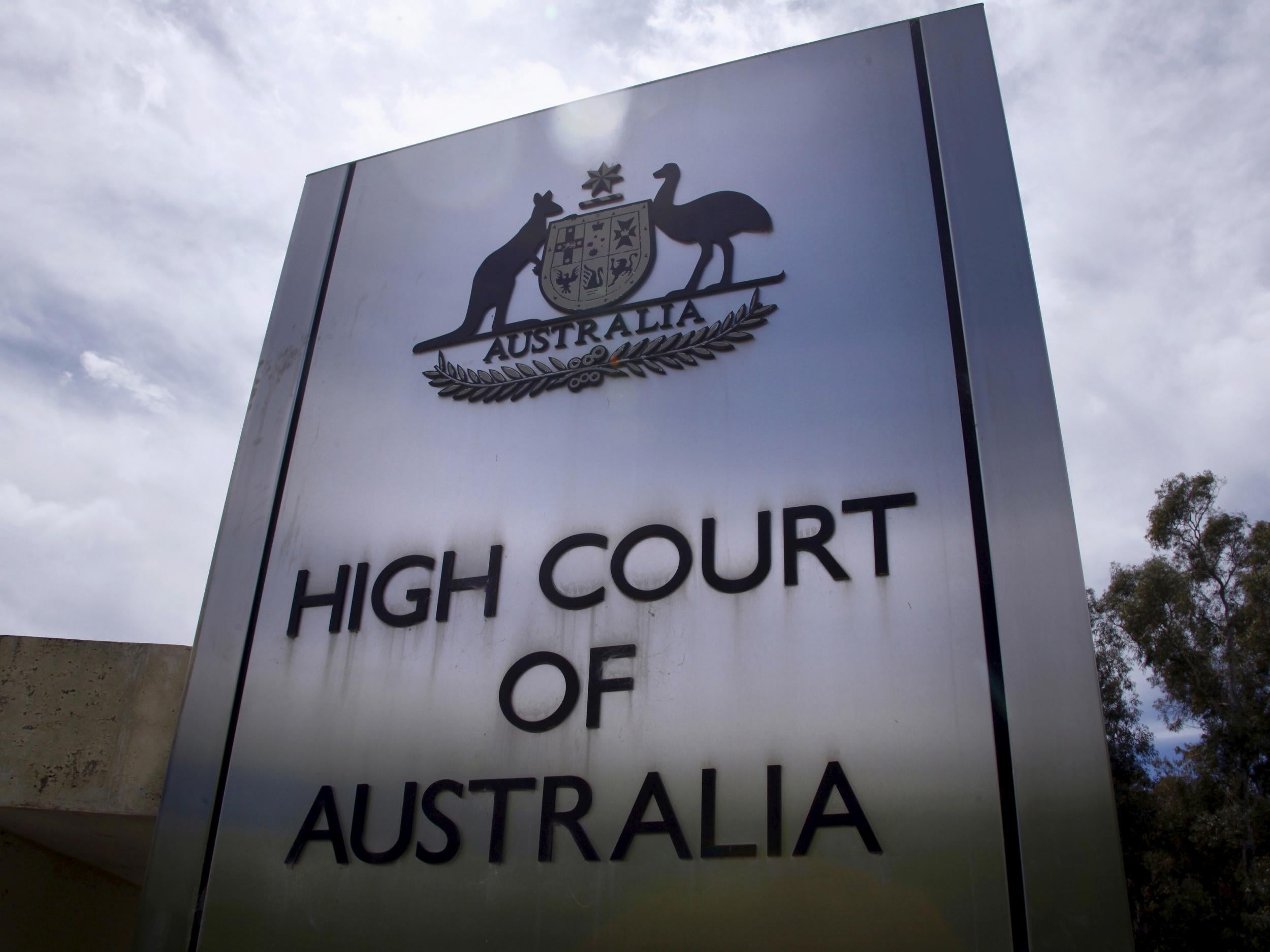Australia's High Court begins hearing citizenship case that could collapse the country's government
Seven politicians including Deputy PM Barnaby Joyce could be removed from Parliament if judge decides to enforce constitutional ban on those with dual nationalities serving in government

A government lawyer has told Australia’s High Court that it could not take a constitutional ban on dual citizens being elected to Parliament literally when deciding the fates of seven lawmakers.
Solicitor-General Stephen Donaghue told the High Court judges that five of the lawmakers, including three government ministers, should not be disqualified from Parliament for breaching the constitution because they did not voluntarily acquire or retain citizenship of another country.
The hearing began on Tuesday and is expected to take three days.
Under Section 44 (i) of the 116-year-old constitution, “a subject or citizen of a foreign power” is not eligible to be elected to Parliament.
“The text of Section 44 (i) cannot be read literally because a person may have the status of being a subject or a citizen of a foreign power but nevertheless not be disqualified,” Mr Donaghue said.
“If a person is not aware either that they are a dual citizen or of a significant prospect that they are, in our submission by definition that person cannot have a split allegiance,” he added.
The fate of Deputy Prime Minister Barnaby Joyce is most crucial to the government in an unprecedented political crisis.
If the court rules that he was illegally elected in July last year due to New Zealand citizenship he unknowingly inherited from his father, the ruling conservative coalition could lose its single-seat majority in the House of Representatives, where governments are formed.
The remaining six lawmakers are senators who could be replaced by members of the same party without an election.
Mr Donaghue argues that only New Zealand-born Scott Ludlam and India-born Malcolm Roberts should be disqualified for failing to take reasonable steps to renounce their dual nationalities.
Mr Ludlam accepts that view and has resigned. A fellow member of the minor Greens party, Larissa Waters, has also resigned and argues that she deserves to be disqualified over her citizenship of Canada, where she was born.
Mr Roberts argues that he shouldn’t be disqualified because he had emailed the British government to renounce the citizenship he inherited from his Welsh father, but did not pay the required renunciation fee. Roberts is a member of the One Nation minor party.
Tony Windsor, a political rival of the deputy prime minister who contested the same electoral division in the last election, told the court that Joyce should be disqualified because he had known his father was born in New Zealand and should have checked his own citizenship status.
Mr Donaghue told the court that the case of Australian-born Senator Nick Xenophon showed the process of renouncing citizenship was not straightforward.
Mr Xenophon, who leads his own minor party, had parents born in Greece and Cyprus and asked both countries if he was a citizen before running for Parliament. The Greek Embassy in Australia mistakenly told him he was Greek through his mother.
But Mr Xenophon recently discovered that he was British because his father left Cyprus before it became independent of Britain in 1960.
Mr Xenophon argues that his connection to Britain was too remote for him to be considered British.
Mr Donaghue told the seven judges hearing the case that when the Australian constitution took effect in 1901, no other country in the British Empire banned dual nationals from becoming lawmakers.
AP
Join our commenting forum
Join thought-provoking conversations, follow other Independent readers and see their replies
Comments